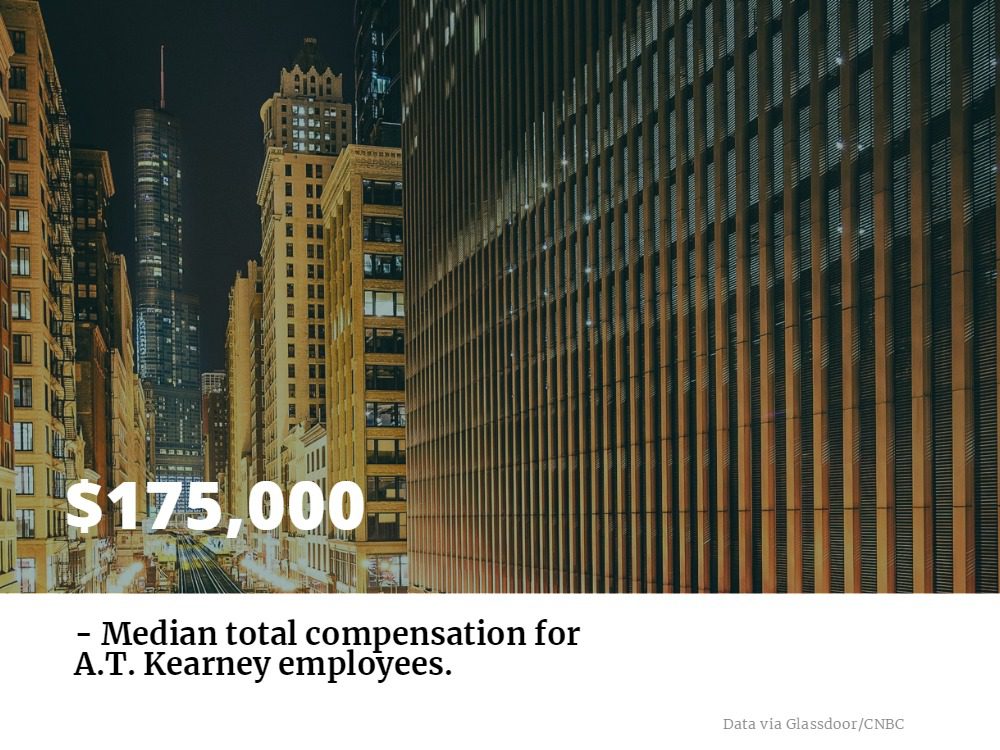The Future of Employment at Philly Business Schools

When considering where to get your MBA, one of the first questions you should ask is, “What will my employment outlook be?” After all, the reason you get an MBA is to improve your career. But what is important when it comes to employment trends at the leading business schools in Philadelphia? There are quite a few different statistics you should look at.
Important MBA Employment Statistics
To choose an MBA program based on your future career success, there are a few questions you need to answer.
- What industry do I want to work in and does the school place a majority of their students in that industry?
- What percentage of students receive and accept job offers? The same for internships?
- Self-employed or entrepreneurship data?
- What salary can I expect?
- Where do most students end up living and work?
- Who are the top employers?
You also want to look at any trends between years. For example, the percentage of students receiving job offers should increase year-over-year. And if you see a shift from the consulting industry to financial services, you want to be aware that the school could be changing its direction.
So, what does employment look like for three of the top Philly business schools?
The Wharton School
At the Wharton School at the University of Pennsylvania, the employment trends year-over-year are fairly consistent. While the percentage of students reporting job offers dropped from 2016 to 2017, part of that reason may be the increased number of students seeking employment (75.2 percent vs. 79.1 percent).
As for the increase in median salary, that can be attributed to inflation as well as an increase in job salary for each industry including professional services rising from $160,000 in 2016 to $180,000 in 2017. The location of jobs also changed slightly between 2016 and 2017, but that could be due to various reasons including the current state of international affairs for the U.S.
| The Wharton School | 2017 | 2016 |
|---|---|---|
| Percentage of students reporting job offers | 97.1 percent | 98.3 percent |
| Percentage of self-employed students or those starting their own business | 4.8 percent | 5.8 percent |
| Median Salary | $130,000 | $125,000 |
| Location Choices | 88.7 percent U.S. 11.3 percent International | 86.9 percent U.S. 13.1 percent International |
As for where MBA students at the Wharton School gain employment, there are a few important notes. The same top three industries—financial services, consulting, and technology—attracted students in both 2016 and 2017. However, the percentages were a little more evenly distributed in 2017. As for the companies hiring students, most of the same companies showed up each year.
| Top Three Industries | Percentage of Students (2017) | Percentage of Students (2016) | Companies Employing Two or More Students (2017) |
|---|---|---|---|
| Financial Services | 32.7 percent | 35.1 percent | Barclays, CITI, and HSBC |
| Consulting | 28.3 percent | 26.6 percent | A.T. Kearney, McKinsey & Company, and Boston Consulting Group |
| Technology | 16 percent | 12.6 percent | Adobe Systems, Amazon, and IBM |
Penn State Smeal College of Business
Pen State’s Smeal College of Business is consistent year-over-year in regards to its MBA employment trends. The percentage of student reporting and accepting job offers increased between 2016 and 2017 from 88.9 percent to 91.5 percent. However, the median salary stayed consistent at $105,000, and the hiring trend of most MBA students staying in the U.S. also remained the same.
| Penn State Smeal College of Business | 2017 | 2016 |
|---|---|---|
| Percentage of Students Reporting Job Offers | 91.5 percent | 88.9 percent |
| Median Salary | $105,000 | $105,000 |
| Location(s) | 98 percent U.S. 2 percent International | 96.5 percent U.S. 3.5 percent International |
As for where MBA students at Smeal College gain employment, there are a few important notes. While the same industries made the top four each year, where they placed changed. In 2016, the top industry was consulting (25 percent) while that changed to manufacturing in 2017 (20 percent). In 2017, retail also moved into tie consulting for the second most sought-after industry, while technology actually decreased year-over-year (23 percent vs. 15 percent).
| Top Four Industries | Percentage of Students (2017) | Percentage of Students (2016) | Companies Hiring |
|---|---|---|---|
| Consutling | 18.5 percent | 25 percent | Deloitte, EY, and PricewaterhouseCoopers |
| Technology | 15 percent | 23 percent | Amazon, Apple, and Dell |
| Manufacturing | 20 percent | 14 percent | Amphenol Corp, CHEP, International Inc. |
| Retail | 18.5 percent | 14 percent | Anheuser-Busch, Proctor & Gamble, and Johnson & Johnson |
Rutgers Business School, Camden
In 2017, the Financial Times ranked the Rutgers MBA as the best program for MBA employment across Big 10 schools. In 2016, Bloomberg Businessweek also ranked Rutgers as the best MBA program for job placement in the U.S. This indicates a relatively steady year-over-year employment trend for MBA students.
As for the median salary of a Rutgers MBA, students in 2017 could expect to earn $95,680. As for the most popular industries, they were:
- Pharmaceutical/Biotech/Healthcare: 46 percent
- Consulting: 13 percent
- Consumer Products: 13 percent
- Other: 14 percent
Your Future A.T. Kearney Career is Waiting for You

For many organizations, finding a candidate with an MBA degree on their resume is a shortcut to knowing how well they will succeed at the company. With the strong foundational business skills the degree provides, companies can feel safe hiring an MBA student or graduate.
Founded in the mid 1920s, A.T. Kearney is a Chicago-based global management consulting firm and on of the more active MBA recruiters. As of 2016, the company holds 60 offices in over 40 countries throughout the globe, with roughly 3,500 employees.
Why Work at A.T. Kearney?
A.T. Kearney has made a commitment to creating transformational experiences for its clients, it makes the same promise for its employees. The company strongly believes that diversity is a key part of its culture, and aims to create an inclusive environment where people of any background can find success. The firm is unique in its offering of personalized programs that can help each employee find the perfect path to career success. Programs like Success with Flex, which offers flexible scheduling options, Pathway for Parents, which provides resources for working caregivers, or the Encore program, which helps professionals reenter the workforce after a long break, demonstrate the company’s commitment to creating a positive work environment for all its employees.
On Glassdoor, anonymous current and former A.T. Kearney employees largely praise the consulting company, giving it an overall positive rating of 4.2. In context, that’s just outside of the “2018 Best Places to Work” top 100 ranking, making it one of the more attractive destinations for current and future MBA grads. Employees cite flexible scheduling and good health insurance policies among the myriad of benefits, but at the end of the day, the pay is what stands out.
According to Glassdoor data, compiled by CNBC, A.T. Kearney employees earn the highest median salary of any employer in the entire United States, with a median total base compensation of $175,000. And with some positively alluring bonuses, that puts employees in the $200,000 range.

How To Get Your Foot in the Door
A.T. Kearney recruits talent in a number of ways. The company already works alongside a number of top business schools in the country, offering networking events, career fairs, and presentations on campus. Students can also begin the interviewing process right on campus. Even if the company does not offer programs at a particular campus, students can still apply directly through the website.
Another important way interested MBAs can get their foot in the door is through the Summer Consultant Program; a ten-week internship which teaches students about what its like to be a consultant at A.T. Kearney. The program starts with a three-day training program at a central location, helping interns to understand the company’s culture and specific approaches to consulting. After the three-day program, interns will return to their local offices and begin working on project assignments. At A.T. Kearney, Summer Consultants are treated the same as any other full-time associate and must collaborate with managers, principles and partners to create client solutions.
“The Summer Consultant Program allowed me to make an impact through my client work, get a real feel for the office’s culture, and, most importantly, build strong relationships with future colleagues at all levels of the firm. In all, the experience left me excited about the opportunity to join the firm full-time,” says Kate Maheu, a full-time associate who started as a Summer Consultant in 2013.
What Types of Jobs are Available?
From summer consultants and beyond, A.T. Kearney has a number of jobs for which they are seeking talented MBA graduates. Below are just a couple examples of positions open at the time of writing.
Associate – Digital Transformation:
The first of its kind among management firms, the Digital Transformation practice at A.T. Kearney offers organizations help in making sense of their changing needs in an constantly evolving business world. The Digital Transformation Associate works alongside clients, collaborating and problem-solving in a fast paced environment with the potential to make a big impact. The perfect consultant for this role would possess an MBA from a leading institution and have 5-10 years of success in Business and Technology.
The Contracts Officer at A.T. Kearney will be a senior member of the Public Sector team at the company, responsible for management of contracts between the firm and Government agencies. The ideal candidate for this position would hold have active business connections in government sectors and more than ten years experience in a consulting environment. An undergraduate degree is required for this role with an MBA highly preferred.
More Tech Hires at Kellogg, Per 2016 Employment Report

‘Tis the season for MBA employment reports, and one of the latest schools to share details about how its most recent class of graduates fared in their quest for jobs is Northwestern’s Kellogg School of Management. Released in its entirety last week, the report shows a surge of graduates heading off toward technology firms—22 percent of the class, up from 15 percent last year.
“I do think the tech story jumps out,” says Liza Kirkpatrick, director of career management for the full-time MBA program. “But we really are very proud of this year’s employment outcomes overall.” She went on to cite the fact that 96 percent of students received an offer within three months of graduation, up slightly from 95 percent the year before. The median base salary was $125,000, up $2,000 from the year before.
Consulting, long the destination for the majority of Kellogg grads, still drew one in every three—33 percent—though this represents an ever-so-slight dip from the 35 and 36 percent in each of the past four years. Financial services, which drew 19 percent of last year’s class and 20 percent two of the three years before that, dipped to just 13 percent this year, the most significant downward shift of any industry.
According to Kirkpatrick, the drop off in financial services could be nothing more than a reflection of the aspirations of this particular class. “We look at it as just an indication of the interest of the Class of 2016,” she says, noting that 14 percent of the class took finance internships during the summer between their first and second years, in line with the 13 percent who took full-time offers.
Not Surprisingly, Salaries Highest in Consulting, Financial Services
Though student interest in financial services is lower than it has been, it’s certainly not because of waning paydays. The highest starting salary of the class—$250,000—went to a graduate going into private equity. Median starting salaries for students headed into financial services were $125,000. Overall, consulting led the way in terms of pay, with a median starting salary of $145,000 for these graduates.
Technology trailed slightly, with a median starting salary of $120,000, although Kirkpatrick was quick to point out that salaries for those entering more technical roles at technology firms remain very high. “The more technical your skills are, the higher your base compensation will be,” she says. Stock options and other non-salary compensation also factor into the allure of tech jobs, she adds. “Stock options are very attractive, and we see tech companies using those to attract talent whether for technical or non-technical roles,” she says. Unlike some other schools, Kellogg does not include information about non-salary compensation as part of its employment report. Median signing bonuses were $25,000 for consulting and technology, bested by a median bonus of $32,500 for financial services.
Diversity of Jobs, Employers the Real Story
More than money, it’s the diversity of tech jobs that seems to be drawing Kellogg students, Kirkpatrick says. “There is such wide variety in the types of tech jobs our students take,” she says, noting that graduates went everywhere from very small companies like Narrative Science to medium-size companies like Uber to large firms like Google. They also went into a wide range of functions and an array of sub-sectors, from software to hardware, mobile to the “Internet of Things.”
Both in technology and beyond, the breadth of hiring companies is the real story in Kellogg’s most recent employment report, says Kirkpatrick. “What stands out for me most is the diversity and range of employers that come to Kellogg,” she says. “They are looking at our students—who have a balanced and dynamic skillset, excellent general management skills, the emotional intelligence to motivate teams and make an impact and a global perspective—and they are finding places for them in their organizations.”
There has also been an increase in data-related jobs, she adds. “There’s such a surge in data, and we are increasingly seeing employers look at the MBA skillset as a solution to that,” she says. “We continue to see a broad breadth of employers come to Kellogg, but we also see that how they are using the MBA in their organizations is evolving, too.”
In terms of absolute numbers, McKinsey snapped up more Kellogg grads than any other firm, hiring 43 members of the Class of 2016. Boston Consulting Group and Bain & Co. followed, hiring 25 and 24 respectively. In tech, Amazon led the way, luring 23 grads, followed by Google with 12 and Apple with 10. Notably, companies hiring three or more students accounted for just over half (290) of the jobs, with the other half split between scores of firms each taking just one or two grads, underscoring Kirkpatrick’s point about breadth.
Outside of these numbers were the roughly 15 percent of the class—95 students—who were company-sponsored and returning to their employers. As well, 13 students were focused exclusively on starting their own business, a slight uptick from 11 last year, but still representing just 2 percent of the overall class.
Career Services Adjusts to Changing Recruitment Landscape
As the nature of recruiting has become more diverse, so, too, have the services Kirkpatrick and her team offer. On the employer side, the Kellogg Career Management Center (CMC) has a team of business development leads working to create opportunities for students across industries, geographies and companies. On the student side, a team of one-on-one coaches works intensively to help students identify their target companies and understand what their recruitment journey will look like. If it does evolve to an off-campus process—as is the case for a growing percentage of the class—a personal coach is available to help them navigate it successfully. “What we offer is very customizable to what the student is looking for,” Kirkpatrick says.
“We are always looking at ways to improve our services to students,” she continues. “We do find that students coming in have an increased demand for one-on-one coaching. Students want to have a relationship with their coach, someone who understands their story and can help them achieve their goals. In Kellogg’s CMC we pride ourselves in knowing our students and how to help them on their job search journey.”
Though traditional on-campus recruiting has remained a very robust channel at Kellogg, Kirkpatrick says, the trend toward off-campus, just-in-time recruiting is something she and her team are paying close attention to. “As students’ interests expand, Kellogg’s Career Management Center services and support evolve to support every students unique job search.”
To view the 2016 Kellogg MBA Employment Report, click here.
This article has been republished with permissions via Clear Admit.
